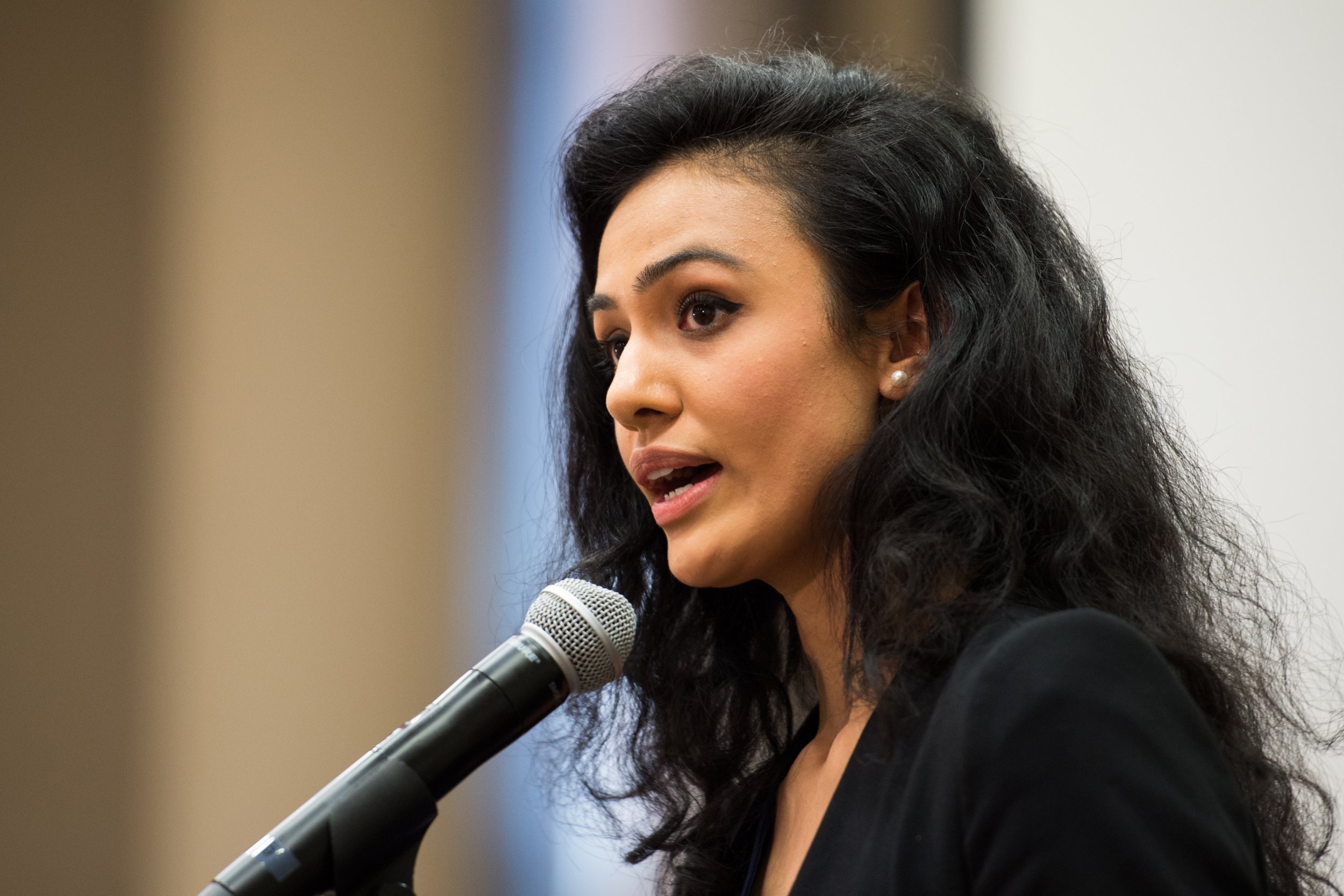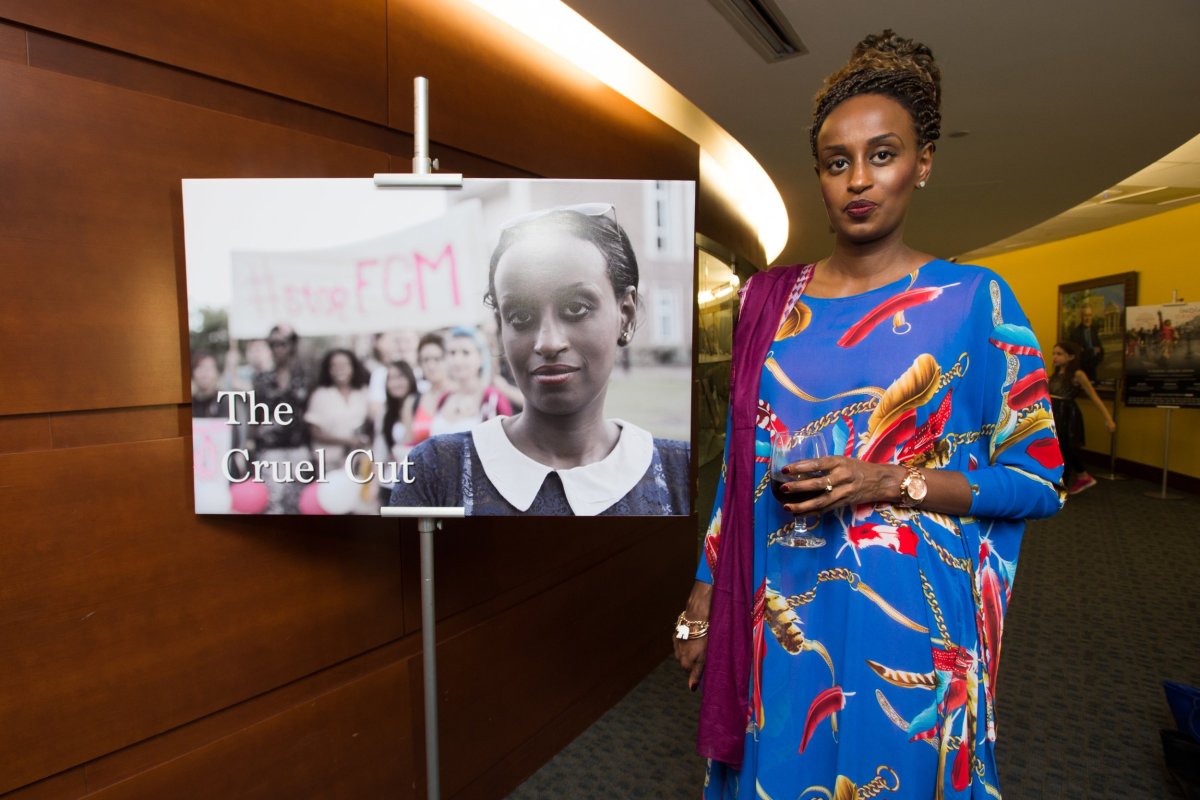
Hundreds of millions of women and girls around the world are abused, mutilated and murdered every day.
Often, these atrocities are committed in the name of religion or tradition, and women are silenced by the cultures they were born into.
Paula Kweskin, an Israeli-American human rights attorney and filmmaker, is hell-bent on bringing stories of struggle, honor violence, female genital mutilation, child marriage and censorship out of the shadows.
In 2015, George Washington University, in Washington D.C., hosted the very first Censored Women's Film Festival. It featured films such as Honor Diaries, India's Daughter, Persepolis, and powerful shorts from the Middle East. Speakers and guests included leading anti-FGM activists, government officials, academics, student leaders, and filmmakers from all over the world.
Now, Kweskin is planning festival number two—in Berlin, Germany. The festival will showcase a host of stories, bringing together men and women from across the world who are using film to make sure suppressed voices are heard. Kweskin used FilmFreeway, a website that connects filmmakers and screenwriters with film festivals and screenplay competitions, to promote the Censored Women's Film Festival. She soon had over 60 submissions.
"Producers from Afghanistan, India, Egypt, Cameroon, the U.K.—just to name a few—have sent us their films and each one has been as emotional as the last," Kweskin tells Newsweek.
"The importance of what we were doing really hit home when I got an email from some filmmakers in Iran. They were concerned they would be unable to apply, as Iran prevents them from paying festival fees," Kweskin says. "Of course we immediately waved the fee and allowed them to apply, but the situation really underscored the sort of censorship that filmmakers are facing on a daily basis.
"The fact that these filmmakers are likely to be part of the fabric of an abusive culture, but are using a camera to fight back…it's so inspiring."

Last year, one of the most controversial entries was filmmaker Leslee Udwin's India's Daughter, a documentary based on the 2012 Delhi gang rape and murder of 23-year-old Jyoti Singh, who was a physiotherapy student. The film pays tribute to Jyoti's short life, while documenting the brutality of her gang-rape and murder and examining the mindset of the men culpable. The film includes interviews with the men and, most importantly, it tries to shed light on the patriarchal society and culture that not only seeds, but encourages, violence against women.
The film was scheduled to be aired on TV channels round the world on March 8 to coincide with International Women's Day. However, when excerpts of the film were broadcast, including the interview with Mukesh Singh, one of the four men convicted of the rape and murder, a court order prohibiting showings of the film was obtained by the Indian police.
The BBC complied with the request and did not air the film in India. Yet it was still shown outside the country on March 4, was uploaded on YouTube, and soon went viral via shares on social media. On March 5, the Indian government directed YouTube to block the video in India.
Kweskin's own film, Honor Diaries, faced a similar fate, after it received a negative reaction from the Council on American-Islamic Relations, which tried to keep the film from being screened across the U.S. Honor Diaries features nine women's rights advocates with connections to Muslim-majority societies, engaged in a dialog about gender equality. The women, firsthand witnesses to the hidden the hardships endured by women, are profiled in their efforts to affect change, in their communities and beyond.
"Honor Diaries was shown in the House of Commons in the U.K., in Geneva, in New York, and in so many other places—I was stunned when suddenly some screenings were canceled," Kweskin tells Newsweek.
"I was really disheartened and disappointed by the whole experience, because the story of the film is told exclusively in women's voices. It is essentially just women talking openly and honestly about their struggles. The reasoning behind canceling the screenings was murky." The idea of curating it festival to bring together the silenced voices of women from around the world stemmed from this experience of censorship.
Now in the final days of its crowdfunding campaign and close to its $40,000 goal, the festival is set to be much bigger for its second iteration—the German publisher, Axel Springer and newspaper newspaper Bild plan to partner with Kweskin and her team to host the event in Berlin this December. Kweskin hopes for the festival to grow even more next year and says her experience has "made me realise just how important it is to have a platform for women to be able to express themselves."
Uncommon Knowledge
Newsweek is committed to challenging conventional wisdom and finding connections in the search for common ground.
Newsweek is committed to challenging conventional wisdom and finding connections in the search for common ground.
About the writer
To read how Newsweek uses AI as a newsroom tool, Click here.








